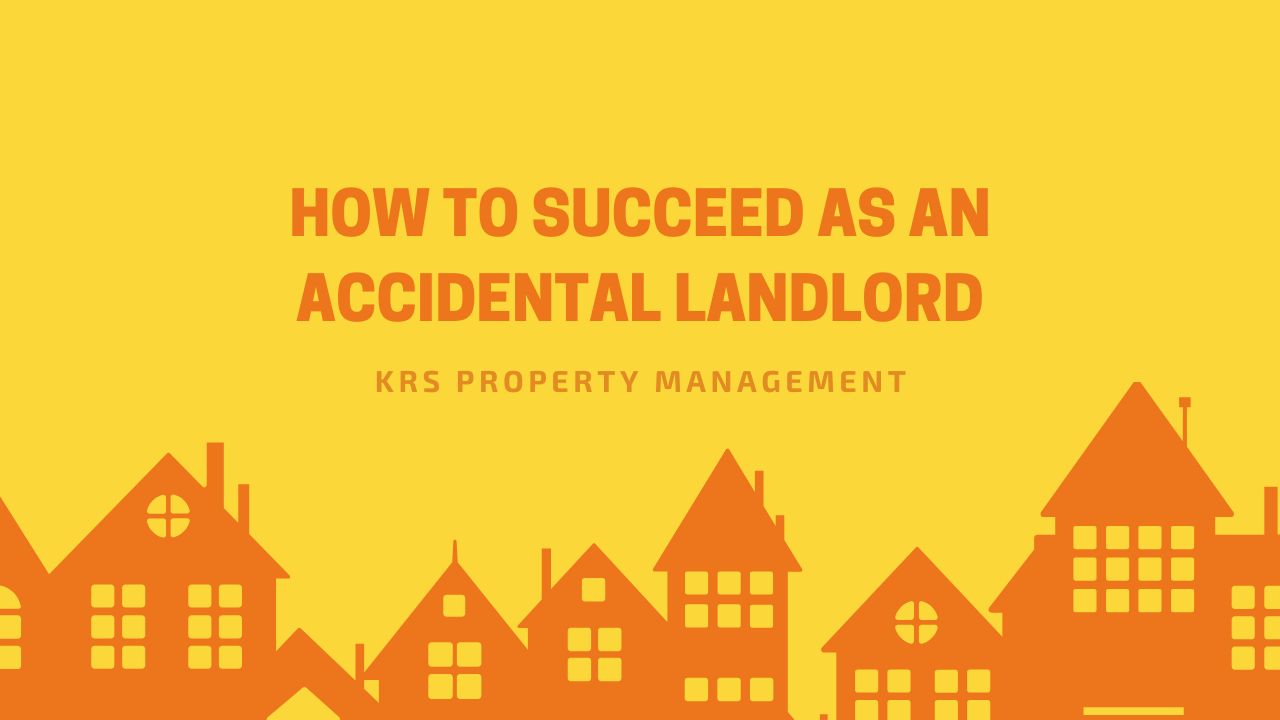Key Takeaways
- Know The Rules and Protect Yourself: Understand North Carolina’s landlord-tenant laws, follow fair housing guidelines, and get proper landlord insurance to avoid legal and financial risks.
- Run it Like a Business: Track income and expenses, maintain accurate records, and treat your rental property as an investment that requires planning, organization, and professionalism.
- Focus on Tenants and Property Care: Prepare your property before renting, market it effectively, and use thorough tenant screening to secure reliable renters and protect your investment.
Did you know that thousands of people become landlords every year without ever planning to? It can happen when someone inherits a home, moves for work and decides to rent out their old house, or struggles to sell in a slow market.
These situations often turn regular homeowners into what is known as accidental landlords. If this describes you, you might be unsure about what comes next. Renting out property comes with legal, financial, and practical responsibilities.
To help you navigate this new role, KRS Property Management put together this article to guide accidental landlords through managing a rental home in North Carolina.
How to Succeed as an Accidental Landlord
Becoming an accidental landlord can feel overwhelming, but these tips will help you succeed.
Understand Your Legal Responsibilities
As a landlord, you must comply with federal, state, and local housing laws. In North Carolina, landlords are required to keep rental properties safe, clean, and in good repair.
This includes maintaining working plumbing, heating, and electrical systems, providing smoke detectors, and addressing health or safety hazards quickly. Landlords must also follow fair housing laws set by the U.S. Department of Housing and Urban Development.
These laws prohibit discrimination based on race, color, religion, sex, national origin, disability, or family status. When renting out property, you also need a written lease agreement that clearly outlines the rules, rent amount, payment schedule, and security deposit terms.
.jpg)
North Carolina law limits how much you can charge as a security deposit and sets rules for returning it after the lease ends. Knowing and following these laws helps prevent disputes and protects you from legal issues.
Get the Right Insurance Coverage
Once you rent out your property, your regular homeowner’s insurance is usually no longer enough. Landlord insurance provides coverage for property damage caused by events like fire or storms and offers liability protection if someone is injured on the property.
It can also cover lost rental income if the property becomes uninhabitable due to covered damage. Requiring your tenants to have renter’s insurance is also a good practice.
This protects their personal belongings and can reduce disputes if something is damaged. Review your current insurance policies and talk with your provider about updating your coverage to match your new role as a landlord.
Stay on Top of Finances and Taxes
Before renting your property, take time to review the costs and income involved. Calculate how much rent you can realistically charge based on the local market.
Subtract your monthly mortgage, property taxes, insurance, maintenance costs, and a reserve for unexpected repairs. This will help you see if renting will cover your expenses and generate profit.
Rental income is taxable. You will need to report it on your federal tax return using Schedule E. The Internal Revenue Service allows you to deduct certain expenses such as mortgage interest, property taxes, repairs, and property depreciation.

If you earn significant rental income, you may need to make quarterly estimated tax payments. Keeping accurate records and consulting a tax professional can help you stay compliant and avoid surprises during tax season.
Prepare and Market Your Property
A well-prepared property attracts reliable tenants and reduces problems later. Complete all repairs before listing the property. Make sure heating, cooling, plumbing, and electrical systems are working properly.
Check that all smoke detectors are installed and operational as required by North Carolina law. Clean the property thoroughly, inside and out, and improve curb appeal by maintaining the yard.
Decide whether to rent the property furnished or unfurnished. Take clear, well-lit photos and write an accurate and detailed listing.
Include the number of bedrooms and bathrooms, square footage, special features, and monthly rent amount. Share your listing on rental platforms or work with a local property manager to reach potential tenants.
Screen and Select Tenants Carefully
Choosing the right tenant is one of the most important steps in protecting your property and income. A thorough tenant screening process includes reviewing credit reports, verifying income and employment, checking rental history, and contacting previous landlords.
This helps confirm that the tenant can pay rent on time and will take care of the property. Always follow fair housing laws during the screening process. Treat every applicant equally and use the same screening criteria for all.

Once you select a tenant, use a written lease agreement that includes rent amount, payment dates, late fees, lease length, and responsibilities for maintenance and utilities. Collect the first month’s rent and security deposit before the tenant moves in.
Treat Your Rental Like a Business
Being a landlord is similar to running a small business. Open a separate bank account for rental income and expenses. This keeps your records clear and makes tax reporting easier. Schedule regular maintenance and inspections to prevent small issues from becoming expensive problems.
Respond promptly to tenant repair requests and keep a written record of all communications, lease documents, and receipts.
Clear communication builds trust and helps avoid conflicts. If managing the property becomes overwhelming or you live far away, hiring a professional property manager can save time and ensure the property is cared for properly.
Plan for the Future
It is important to think ahead about what you want to do with the property long term. You may plan to sell when the market improves, keep it as a long-term investment, or move back in at a later date. Review your goals each year and watch local market trends to make informed decisions.
Having an exit plan helps you prepare for changes in your financial situation or housing market conditions. Knowing when and how you want to end your role as a landlord will make future transitions smoother.
Contact Us Today!
Bottom Line
Becoming an accidental landlord can feel overwhelming at first, but it can also be a smart financial decision when handled correctly.
By understanding legal requirements, getting proper insurance, managing finances, preparing your property, screening tenants, staying organized, and planning ahead, you can protect your property and build a reliable source of income.
KRS Property Management can help accidental landlords handle these responsibilities with ease. With the right systems in place, what started as an unplanned responsibility can become a valuable long-term investment.







